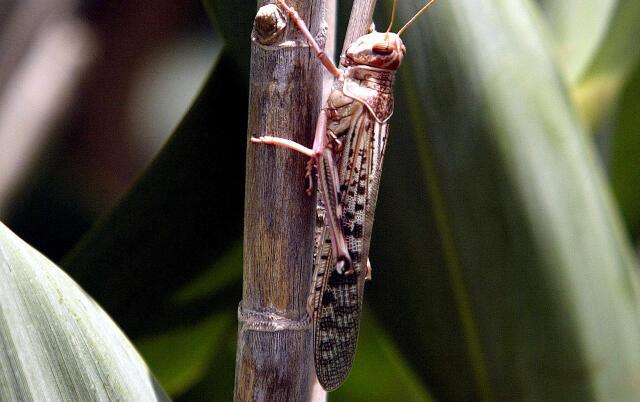Experts fear that swarms escaping from the Karoo could also cause damage to maize and sorghum crops in the Free State, and beyond.
FARMERS fear a locust infestation later in the year after reports of brown locusts laying eggs in the areas close to the Karoo National Park, according to Agriculture MEC Ivan Meyer.
While feedback from the teams that are spraying chemicals in the affected areas indicated that the situation in the Central Karoo was under control, Meyer said there were signs of new outbreaks in the areas close to the Karoo National Park.
“Should these eggs hatch, we can expect a locust infestation in September this year, due to the favourable warm weather then.
“The provincial department is currently liaising with the national department to assess the damage and see how relief can be provided to affected farmers,” said Meyer.
Meyer was answering a question in the legislature from ANC provincial agriculture spokesperson, Pat Marran, about the locust plague and the measures taken to manage the situation.
Marran also wanted to know what action the provincial department was taking to ensure the locust plague did not spread to other areas.
Meyer said that the locust swarms spotted in the Cape Winelands had dissipated, and there had been no new sightings or incidents there, nor on the Garden Route.
According to Agricultural Research Council research team manager, Dr Roger Price, brown locusts are endemic to the semi-arid Karoo area.
Price said that while they did not produce the same devastating cycle as the desert locusts, brown locusts could cause extensive damage to crops. He said grazing velds, especially in areas with poorer-quality veld where the locusts were in direct competition with sheep for forage, were most at risk.
Experts fear that swarms escaping from the Karoo could also cause damage to maize and sorghum crops in the Free State, and beyond.
Cape Argus








